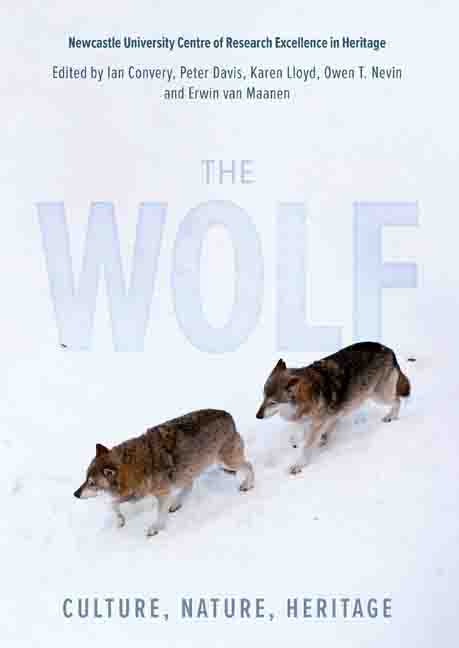Book contents
- Frontmatter
- Dedication
- Contents
- List of Illustrations
- Preface and Acknowledgments
- List of Abbreviations
- Poem: Trophic Cascade by Camille T Dungy
- Foreword
- Part I Imagining the Wolf
- Part II What Makes the Wolf
- Part III Return of the Wolf
- Part IV Personal Encounters
- Afterword: The Ecological Disadvantage of Living on an Island
- Glossary
- List of Contributors
- Index
10 - A ‘Wasteland’ Infested by Wolves: The Fallacy of ‘Dark Age’ England
Published online by Cambridge University Press: 10 January 2024
- Frontmatter
- Dedication
- Contents
- List of Illustrations
- Preface and Acknowledgments
- List of Abbreviations
- Poem: Trophic Cascade by Camille T Dungy
- Foreword
- Part I Imagining the Wolf
- Part II What Makes the Wolf
- Part III Return of the Wolf
- Part IV Personal Encounters
- Afterword: The Ecological Disadvantage of Living on an Island
- Glossary
- List of Contributors
- Index
Summary
In March 2021, The Telegraph reported that the UK government Department for Environment, Food and Rural Affairs (DEFRA) had been instructed by then Prime Minister Boris Johnson to create ‘a rewilding “task force” to gauge appetite for returning lynx and wolves to England’ (Horton 2021). Although DEFRA soon published a refutation of this claim, the response of the chief executive of the Tenant Farmers Association, George Dunn, was decisive:
The reintroduction of top predators such as lynx and wolves would be reckless in the extreme. We already have a major problem in trying to control domestic pets around livestock, without adding further pressures.
Those unelected influencers at the heart of Government should be setting their sights on helping to resolve more immediate issues such as hare coursing, fly tipping and dog attacks on livestock, which would have far greater beneficial impacts on our countryside than some misguided idea about returning Britain to a sort of medieval wasteland. (Kay 2021)
This description of a landscape roamed by reintroduced large carnivores as a ‘medieval wasteland’ bespeaks a fear that to return wolves and lynx to Britain would constitute a step backwards, reneging on centuries of progress during which the landscape has been improved and ‘civilised’ by the removal of these species.
This fear is bound up with the familiar description of the (early) medieval period as the ‘Dark Ages’, an era ‘so called because it has been considered a time of relative lack of intellectual and cultural enlightenment’ (OED s.v. dark ages). While usage of this phrase is perhaps so common that the import of the words comprising it go unquestioned, the term's subtextual ‘battle-cry, “[its] denunciation of … the culture of the Middle Ages”’ (Mommsen 1942, 227) remains deeply embedded in cultural conceptions of this period, such that the adjective ‘medieval’ is often used to describe anything deemed ‘backwards’, ‘bad’, or ‘evil’ (Robinson 1984, 752–3).
- Type
- Chapter
- Information
- The WolfCulture, Nature, Heritage, pp. 107 - 116Publisher: Boydell & BrewerPrint publication year: 2023

